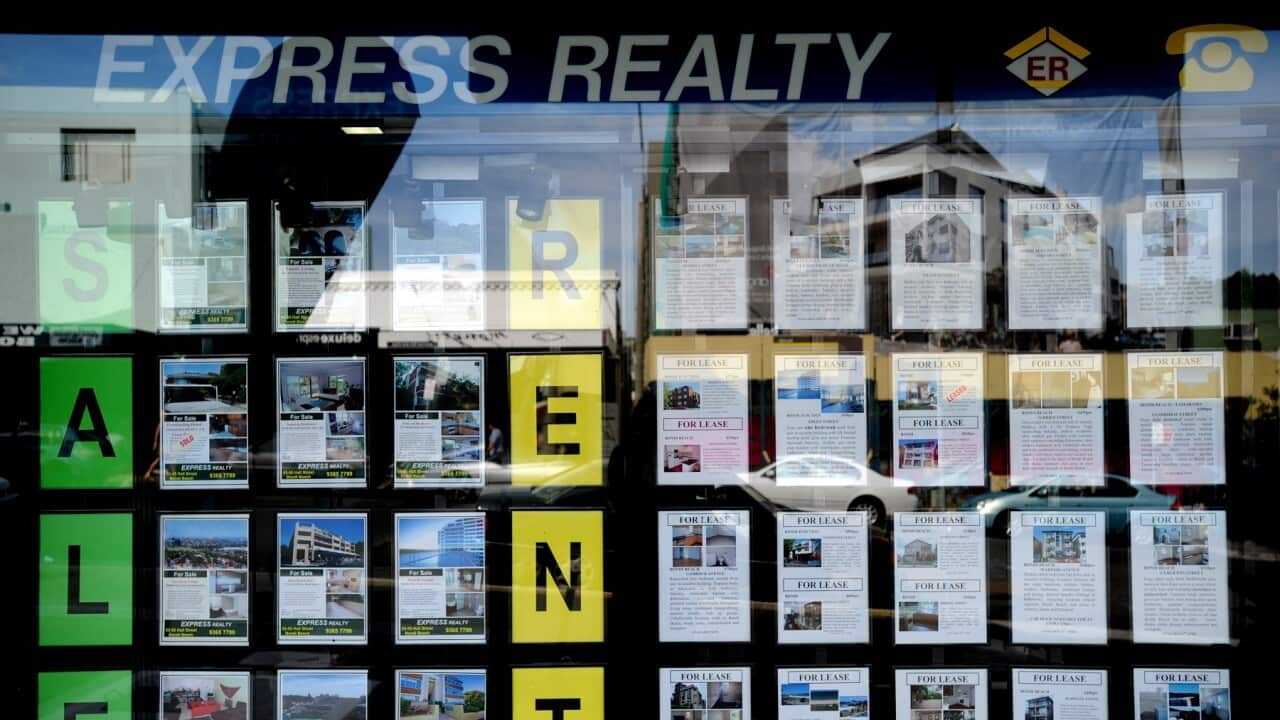TRANSCRIPT
Australians are facing a new record high in rent, amid a surge in demand for homelessness assistance and a cost of living crisis.
CoreLogic's new data reveals the skyrocketing cost of housing across the country, with renters paying a median of $31,252 per year to keep a roof over their heads.
The report says that the reduction in social housing supply over the years and a decline in the rate of home ownership has increased pressure on the private rental market.
Head of Residential Research at CoreLogic, Eliza Owen says cites a number of factors that contributed to the increase in rental prices.
"There's many different reasons that we saw notable rent growth from late 2020. Things like reduction in average household size through the pandemic, partly driven by a reduction in rental share housing, we've seen rapid increase in the Australian population from late 2022 as international borders reopened, and we did see investors kind of peel away from the market from mid 2022 to the start of 2023 due to rising interest rates, investment numbers have since recovered which will help to ease supply but there's still a lot of catching up to do relative to the rental demand levels we see"
According to the report, rent increased by a median of $164 to $601 per week in December 2023, up from $437 per week in August 2020.
Sydney is topping the list with a median of $745 per week, followed by Canberra at $651 per week and Perth at $630 per week, respectively.
The portion of gross median household income needed to pay for rent surged from 26.7 per cent in March 2020, to almost one-third in September last year.
Chief executive of the Tenancy Union of New South Wales, Leo Patterson Ross says for renters, their rent is their biggest expense.
"The rent is the biggest cost of living that they have to pay, that they have to find in their budgets. It's also the least forgiving. So in a lot of other areas, you can cut down on your spending by eating a little bit less or changing where you shop. As a result. What we see from people is that the rent is the last thing that they stop paying, And they sacrifice other areas of life they do miss meals and particularly adults will skip meals so that their children can eat. They will skip health care in order to make the rent and that's how people have been surviving, how people have been making it through this crisis."
Mr Ross says the rental price hike that started post-COVID, has been affecting all other areas of people lives, especially their living conditions and quality of life as the situation is forcing people to forego necessities in their lives.
Ms Owen says it may take a while to resolve the rental crisis.
"Because this is a problem that emerged from decades of under supply of social housing loss and rates of home ownership, all of which is added longer term pressure to the private rental market. It’s something that takes a long time to fix as well. The movement of people and the demand from changing household sizes is relatively quick, but to establish new properties takes a long time, especially right now because of the constraints that we're seeing in the construction sector"]]
Meanwhile, the Productivity Commission's annual report on government services shows the number of people leaving homelessness support and falling into rough sleeping has jumped by almost a quarter.”
Requests for accommodation have increased, and more than 57,000 people [[57,519]] have been identified as needing shelter but not getting it.
Ahead of a Labour meeting to discuss a cost of living package, Homelessness Australia is urging Prime Minister Anthony Albanese to support people unable to afford private housing.
The federal government released a $10 billion Housing Australia Future Fund and national housing accord in September last year, set to deliver 40,000 social and affordable rental homes.
Kate Colvin, chief executive of Homelessness Australia says there is not enough resources to provide help to those who need it.
She says for homelessness service providers to respond to everyone needing urgent homelessness help, a significant funding boost is required.
"Homelessness Australia has estimated that it would cost $450 million to provide homelessness assistance to everyone who's currently being turned away or for the increased number of people needing help. So in the upcoming budget, we're hoping to see the federal government increase homelessness funding, that at the moment they've budgeted to decrease homelessness funding by 73 million. So we would hope the government would guarantee that funding will not decrease and actually provide the increased support that's needed to respond to people on the frontline of the housing crisis. "
Mission Australia’s chief executive Sharon Callister says it has become almost impossible to help vulnerable people find safe and secure accommodation because the housing stock isn’t available.
s Callister makes a few proposals to the government to help with the homelessness crisis, ahead of a Labor cost of living caucus in Canberra and a review of the upcoming federal budget.
"Firstly, a 50 percent Commonwealth rental assistance program and also increasing income support payments to $78 a day. And this would really help people in need out of poverty and reduce their risk of homelessness. In the longer term, we recommend the government's focus, the national housing and homelessness plan on prevention as well as crisis measures and we're suggesting a 500 million million dollar homelessness prevention and transformation fund. We are also recommending the government adhere to the recommendations of a recent report that said, we require 1 million new social and affordable homes in the next two decades to adequately meet supply. "













